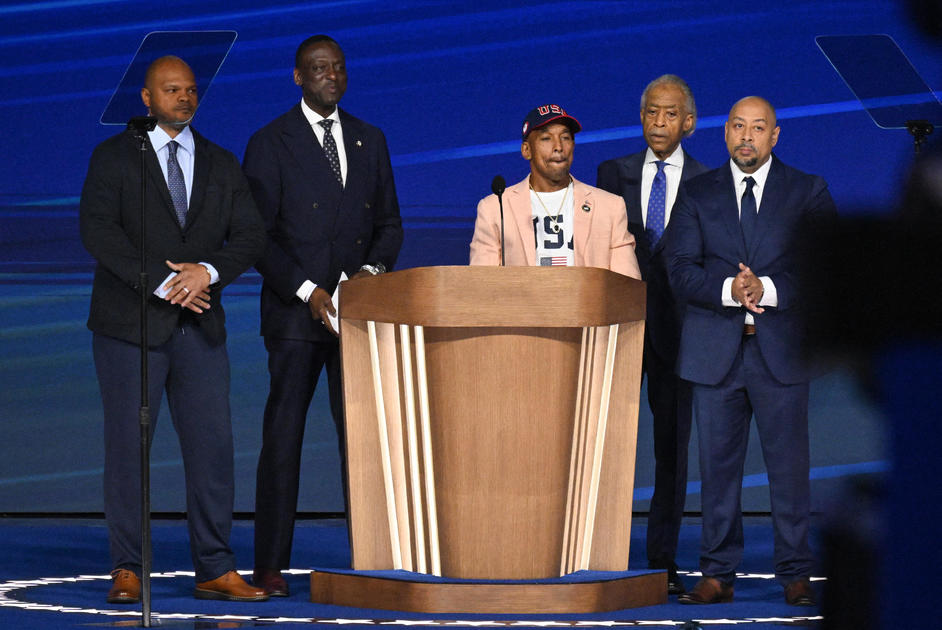Four members of the Central Park Five, a group of Black and Latino teenagers wrongly convicted for the rape and assault of a White female jogger in Central Park in 1989, were introduced at the Democratic convention by the Rev. Al Sharpton. He shared how Donald Trump, a fellow New Yorker he has known for 40 years, took a strong stance against the teenagers by spending $85,000 on a full-page ad in the New York Times calling for their execution. One of the exonerated five, Korey Wise, spoke out about how their innocence was not acknowledged as they faced threats and injustice in the courtroom due to Trump’s actions.
The Central Park Five were exonerated when DNA evidence was matched to a different man who confessed to the attack, leading to their convictions being overturned in 2002. Yusef Salaam, now a New York City councilmember, revealed that Trump wanted him and the others dead during the case, highlighting the racial bias and injustice they faced as teenagers. Despite the evidence and confession, Trump has refused to apologize for his actions, emphasizing that he believes the teens were guilty and should have faced harsher consequences for the crime they did not commit.
Salaam emphasized the importance of using the constitutional and human right to vote to combat hate and discrimination in America. He called on people to join in marching, voting, and standing up for justice to fight against forces like Trump, who promote division and prejudice. The Central Park Five case serves as a reminder of the systemic issues that exist in the criminal justice system and how individuals like Trump can perpetuate injustice through their actions and rhetoric.
The story of the Central Park Five resonates as a powerful example of racial injustice and wrongful convictions in America. Despite being exonerated, the five teenagers faced years of imprisonment and public scrutiny that impacted their lives significantly. Trump’s involvement in calling for their execution further highlights the racial biases and prejudices that were present during the case, reflecting a broader issue of discrimination and inequality in society.
The Democratic convention provided a platform for the Central Park Five to share their story and shed light on the systemic issues of racism and injustice in America. Their message of resilience and determination in the face of adversity serves as a rallying cry for social change and the importance of standing up against discrimination and hatred. By bringing attention to cases like theirs, individuals like the Central Park Five can inspire others to take action and work towards a more just and equitable society.
In the face of continued adversity and prejudice, the Central Park Five’s story serves as a reminder of the importance of perseverance and unity in fighting against injustice. By sharing their experiences and confronting figures like Trump who perpetuate discrimination, the exonerated five demonstrate the power of resilience and courage in the pursuit of justice. Their call for action and advocacy for voting and marching represents a broader movement towards social change and equality in America.


